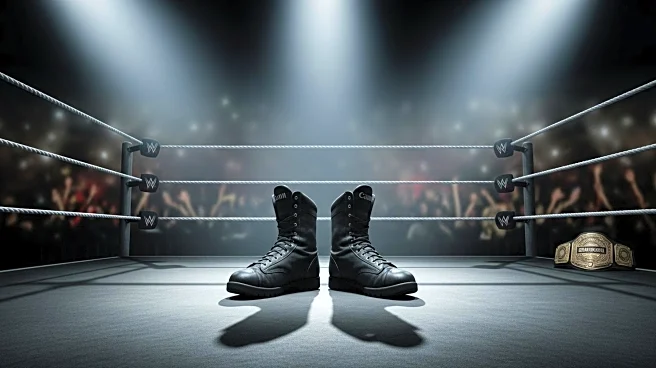What's Happening?
Kevin Owens, a prominent WWE superstar, has expressed uncertainty regarding his return to the wrestling ring following neck fusion surgery. Owens, who spoke at the Coke Zero Sugar 400 NASCAR event, detailed the surgery process and his recovery outlook. The surgery involved a single-level neck fusion, which is considered the best-case scenario. Despite the successful procedure, Owens highlighted the unpredictability of his recovery, as the fusion's success depends on how his body heals. Owens, 41, had to withdraw from WrestleMania 41 due to the surgery, initially scheduled to face Randy Orton. He revealed that an MRI in April indicated severe risks if he continued wrestling without surgery. Owens is hopeful for a return within a year, but acknowledges the uncertainty surrounding his recovery.
Why It's Important?
Kevin Owens' situation underscores the physical risks associated with professional wrestling, highlighting the potential career impacts of serious injuries. Owens is a significant figure in WWE, having held multiple championship titles, and his absence affects ongoing storylines and rivalries. His potential return is crucial for WWE's creative direction, as he has been involved in high-profile feuds with stars like Cody Rhodes and Randy Orton. The uncertainty of his recovery also raises broader questions about athlete health and safety in sports entertainment, potentially influencing WWE's approach to injury management and talent utilization.
What's Next?
The next steps for Kevin Owens involve monitoring his recovery and the fusion process. WWE and Owens will likely assess his condition over the coming months to determine his readiness for a return. The wrestling community and fans are expected to closely follow his progress, with potential adjustments to WWE's storyline plans depending on his recovery timeline. Owens' situation may prompt WWE to consider more stringent health protocols or alternative roles for injured athletes to maintain their involvement in the industry.
Beyond the Headlines
Owens' injury and recovery journey may influence WWE's broader approach to athlete welfare, potentially leading to increased focus on medical evaluations and preventive measures. The situation also highlights the personal challenges athletes face when dealing with career-threatening injuries, including the psychological impact of uncertainty and the pressure to return to peak performance. This could spark discussions on the long-term sustainability of wrestling careers and the importance of post-career planning for athletes.









